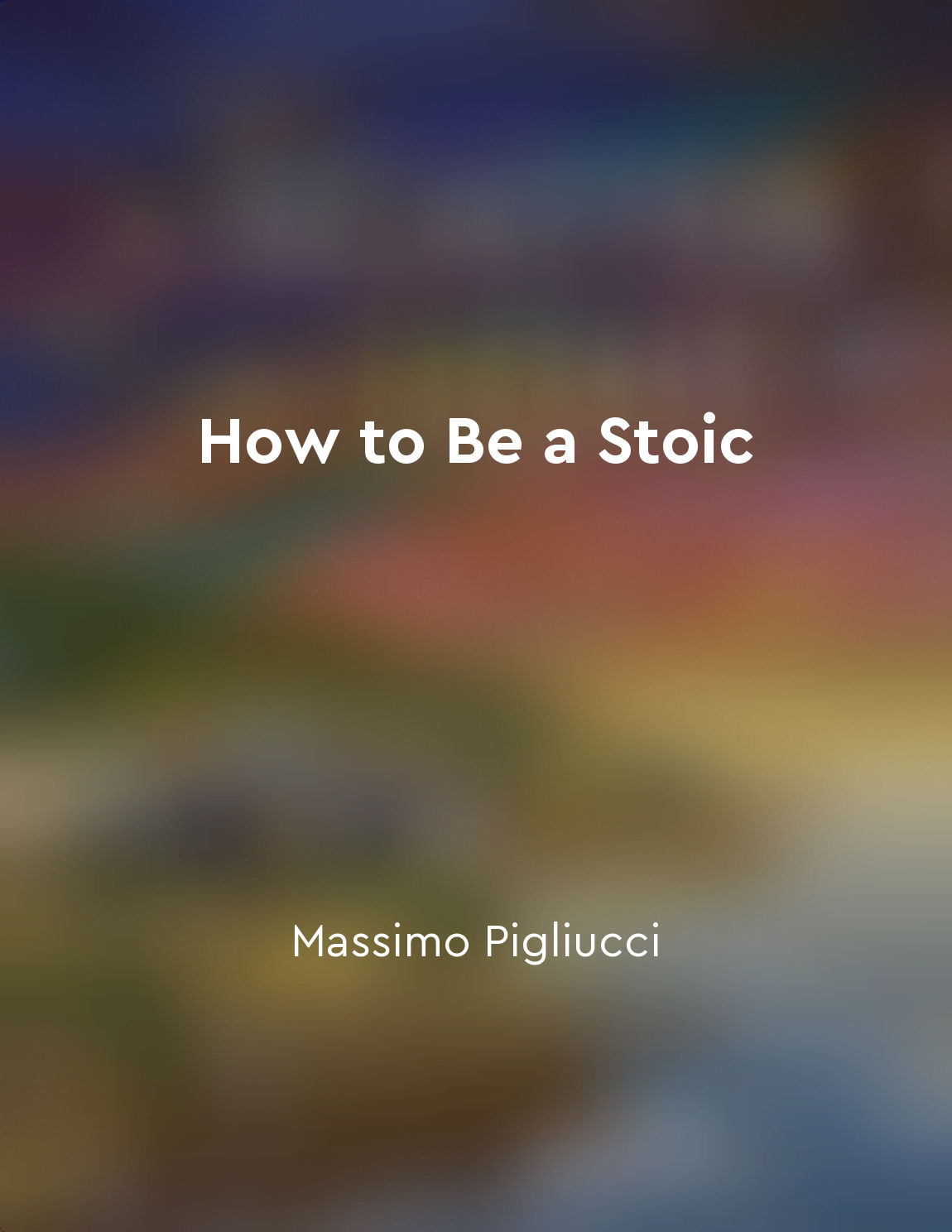Recognize the power of perspective in shaping your experiences from "summary" of How to Be a Stoic by Massimo Pigliucci
The Stoics were acutely aware of the power that our perspective has in shaping our experiences. They realized that it is not the events themselves that cause us distress, but rather our judgments about those events. As the Roman emperor and Stoic philosopher Marcus Aurelius put it, "If you are pained by any external thing, it is not this thing that disturbs you, but your own judgment about it. And it is in your power to wipe out this judgment now."This idea is at the core of Stoic philosophy, which teaches us that we have the power to choose how we perceive and react to the events that happen to us. By changing our perspective, we can change our experience of the world. This is not to say that we should deny or ignore our emotions, but rather that we should examine them critically and determine whether they are based on rational judgments or irrational impulses. One important Stoic practice for recognizing the power of perspective is the "view from above." This exercise involves imagining ourselves from a cosmic perspective, seeing ourselves as tiny and insignificant in the grand scheme of the universe. This can help us to put our problems into perspective and realize that they are not as insurmountable as they may seem. Another Stoic technique for shifting our perspective is the practice of negative visualization. This involves imagining the worst-case scenario in any given situation, which can help us to appreciate what we have and prepare ourselves for difficulties that may lie ahead. By embracing the impermanence of life and the inevitability of change, we can learn to accept and adapt to whatever comes our way.- Recognizing the power of perspective in shaping our experiences can empower us to face life's challenges with courage and resilience. By cultivating a rational and objective outlook on the world, we can free ourselves from the tyranny of our emotions and live a more peaceful and fulfilling existence.
Similar Posts
Stoics focus on virtue and moral character
The core principle of Stoicism revolves around the cultivation of virtue and moral character. Stoics believe that true happines...

Stoicism offers a guide to living a meaningful and virtuous life
Stoicism serves as a practical philosophy that provides individuals with a set of principles and practices aimed at helping the...
The Stoic philosophy is a practical guide to living a meaningful life
Margaret Graver's exploration of Stoicism in "Stoicism and Emotion" reveals a philosophy that offers practical guidance on how ...
Acceptance of what is beyond our control
The Stoic philosophers Epictetus and Seneca both emphasized the importance of accepting things that are beyond our control. The...
Stoicism promotes inner peace and contentment
Stoicism, as a philosophy, offers a path to achieving inner peace and contentment. By focusing on what is within our control an...

Stoicism offers a practical philosophy for living a good life
Stoicism is a philosophy that originated in ancient Greece and Rome, but it remains as relevant today as it was thousands of ye...

The practice of Stoicism provides practical strategies for coping with daily stressors
Stoicism, as a philosophy, offers valuable insights and practical techniques for managing the challenges and pressures of every...
The Stoic approach to emotions involved cultivating indifference to external events
The Stoics believed that emotions were caused by judgments we make about external events. These judgments are often based on fa...
Stoics practice discipline and selfcontrol
The Stoics believed in the importance of discipline and self-control in order to lead a virtuous life. They emphasized the need...
Stoics value integrity and honesty in all actions
Stoics believed in the importance of living a virtuous life, which includes upholding integrity and honesty in all actions. Thi...

